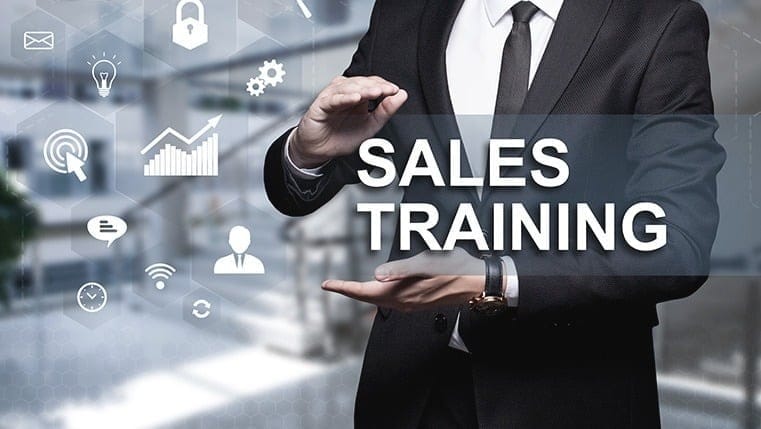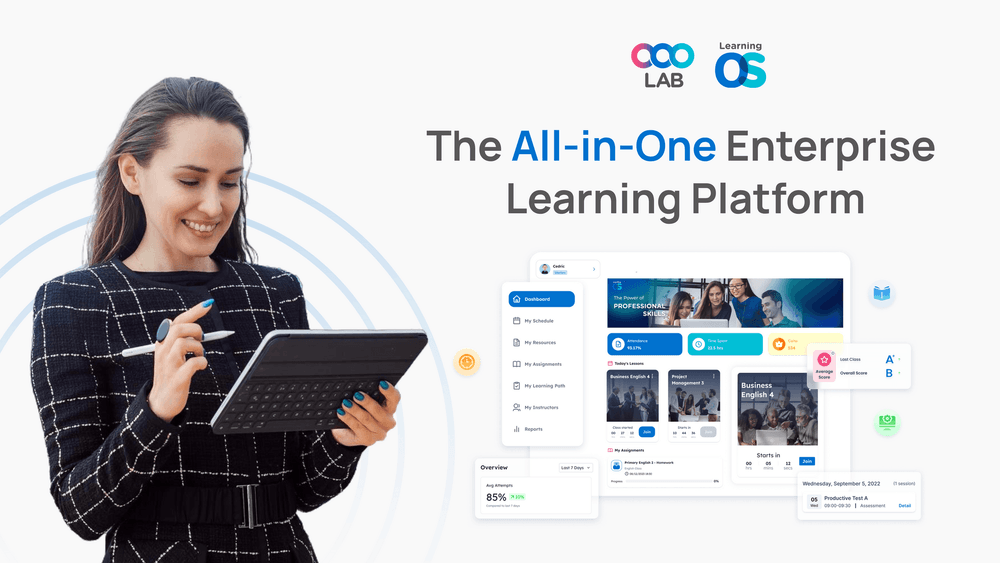

Sales enablement is more than equipping sales teams with tools; it’s about providing a structured framework to improve their performance. A sales enablement playbook acts as a strategic guide, detailing best practices, training methodologies, and essential resources to maximize sales effectiveness. This blog outlines how to build a comprehensive playbook tailored to your organization’s needs, with actionable steps to enhance training effectiveness.

A sales enablement playbook is a detailed document that provides sales teams with the strategies, tools, and resources they need to succeed. It encompasses everything from prospecting techniques to closing deals and serves as a single source of truth for sales reps and managers alike.
Here are some key components that sales enablement playbook should have:
Sales Processes and Frameworks: Clear steps for each stage of the sales cycle.
Training and Onboarding Modules: Comprehensive learning paths for new and experienced team members.
Buyer Personas: Detailed profiles of target customers to help reps tailor their approach.
Content Resources: Templates, presentations, and case studies to support sales efforts.
Performance Metrics: KPIs to track success and measure the playbook’s effectiveness.
According to a study by Brandon Hall Group, organizations with a well-defined sales enablement strategy report a 15% higher win rate than those without one. A structured playbook ensures consistency, scalability, and effectiveness in training and development.
>>> Read more: Sales Training Demystified: Why It Matters More Than Ever
>>> Read more: Effective Onboarding Strategies for New Sales Hires: Setting Them Up for Success
>>> Read more: Building Confidence in Your Sales Team Through Training and Development
>>> Read more: Addressing declining retail foot traffic issue
>>> Read more: A guide to teaching sales rep positive response
>>> Read more: Why is employee upskilling non-negotiable for business success
Before building your playbook, it’s essential to identify clear objectives. Are you aiming to shorten the sales cycle? Increase win rates? Enhance customer satisfaction? Defining these goals will help you design a playbook that aligns with your organizational needs.
Evaluate your current sales training programs and processes. Identify areas that need improvement, such as onboarding timelines, content delivery methods, or skill gaps in your team. Analytics tools within an Enterprise LMS can provide valuable insights into these aspects.
Create a detailed map of your sales process, breaking it down into key stages such as:
Lead Generation: Strategies for identifying potential customers.
Engagement: Methods to build trust and rapport.
Solution Presentation: How to tailor pitches to meet customer needs.
Closing: Best practices for sealing the deal.
Not all sales reps have the same responsibilities. Tailor training programs based on roles such as:
Account Executives: Focus on closing strategies and objection handling.
BDRs (Business Development Representatives): Emphasize lead generation and qualification techniques.
Sales Managers: Train on coaching and performance monitoring.
Role-specific training, supported by an Enterprise LMS, ensures personalized learning experiences.
Gather and organize all necessary resources, including:
Scripts and email templates.
Product demos and case studies.
Training videos and eBooks.
CRM tools and analytics dashboards.
Ensure these materials are easily accessible through a centralized platform like an LMS.
Gamification, such as leaderboards and badges, can increase engagement. Additionally, incorporating real-world scenarios and role-playing exercises can help reps apply their training effectively.
Book Free Demo with us. Bring your Training and Learning to a new height with LearningOS.

You can track metrics such as:
Average deal size.
Sales cycle length.
Training completion rates.
Customer retention rates.
Conduct surveys and interviews to collect qualitative feedback. This helps identify gaps in the playbook and ensures it meets the needs of the team.
Regularly review and update the playbook to keep it aligned with business objectives and market trends.
Building a sales enablement playbook is a transformative step toward improving training effectiveness and sales outcomes. By combining a structured framework, role-specific training, and cutting-edge technology like an Enterprise LMS, businesses can empower their sales teams to achieve their full potential.
As sales environments become more complex, the need for a dynamic, data-driven playbook grows. Organizations that invest in this strategic tool will not only enhance their training effectiveness but also gain a competitive edge in the market.
At OOOLAB (pronounced 'uːlæb'), our mission is to make complex learning operations simple. We aim to positively impact the lives of over 1,000,000 learners and educators by the end of 2026.
OOOLAB's LearningOS provides educational institutions and corporate enterprises with an all-in-one solution to create and deliver engaging learning experiences.
We meet organizations' needs or support your growth. We provide undivided attention. We provide:
1. Dedicated success manager: We offer direct communication with a real human who'll discuss your enterprises unique learning operations and goals.
2. Personalized setup: Our team will help you transition to LearningOS on your schedule, one step at a time.
3. Around the clock support: Get help from us any time, and in any time zone.
We have recently launched a new AI training tool, Skill Quotient OS, designed to elevate hybrid training to new heights. It offers role-play exercises with scenarios and assessments.This tool can apply in sales training, corporate development and customer support training in any industry.
Reach out to us at: LinkedIn, Facebook, Instagram, Tiktok, X
1. What are the main benefits of LearningOS
Our platform is easy to use and automates all aspects of your learning operations. It efficiently manages complex tasks, allowing you to concentrate on delivering exceptional learning experiences.
2. What main features does LearningOS offer?
Our all-in-one software solution combines a Content Management System, a Learning Management System, content authoring tools, and a mobile friendly Learner Portal.
3. Can your platform be used for corporate enterprises?
Absolutely! LearningOS is an Enterprise LMS that is a great fit for corporate learning. In fact, we have clients with up to 700,000 employees using LearningOS! Upskill your workforce by creating and assigning interactive eLearning content while effortlessly tracking employee progress.
4. Who currently uses your platform?
Our platform is currently used by over 120,000+ learners, parents, and employees across 21 countries worldwide!
5. What types of content options are available on your platform?
We offer ready-to-go curriculums for various educational purposes or our expert design team can build a custom course for you. We can also upload your existing learning materials and enhance them digitally.
6. What is unique about LearningOS?
Our platform, designed by educators for educators, provides you with all the tools you need to scale. Build and promote your own hybrid and blended learning courses and save money on licensing fees by owning your own proprietary content.
7. How can I get started?
Schedule a meeting with our experts and we’ll talk about how our platform can address your unique challenges and help to grow your business.